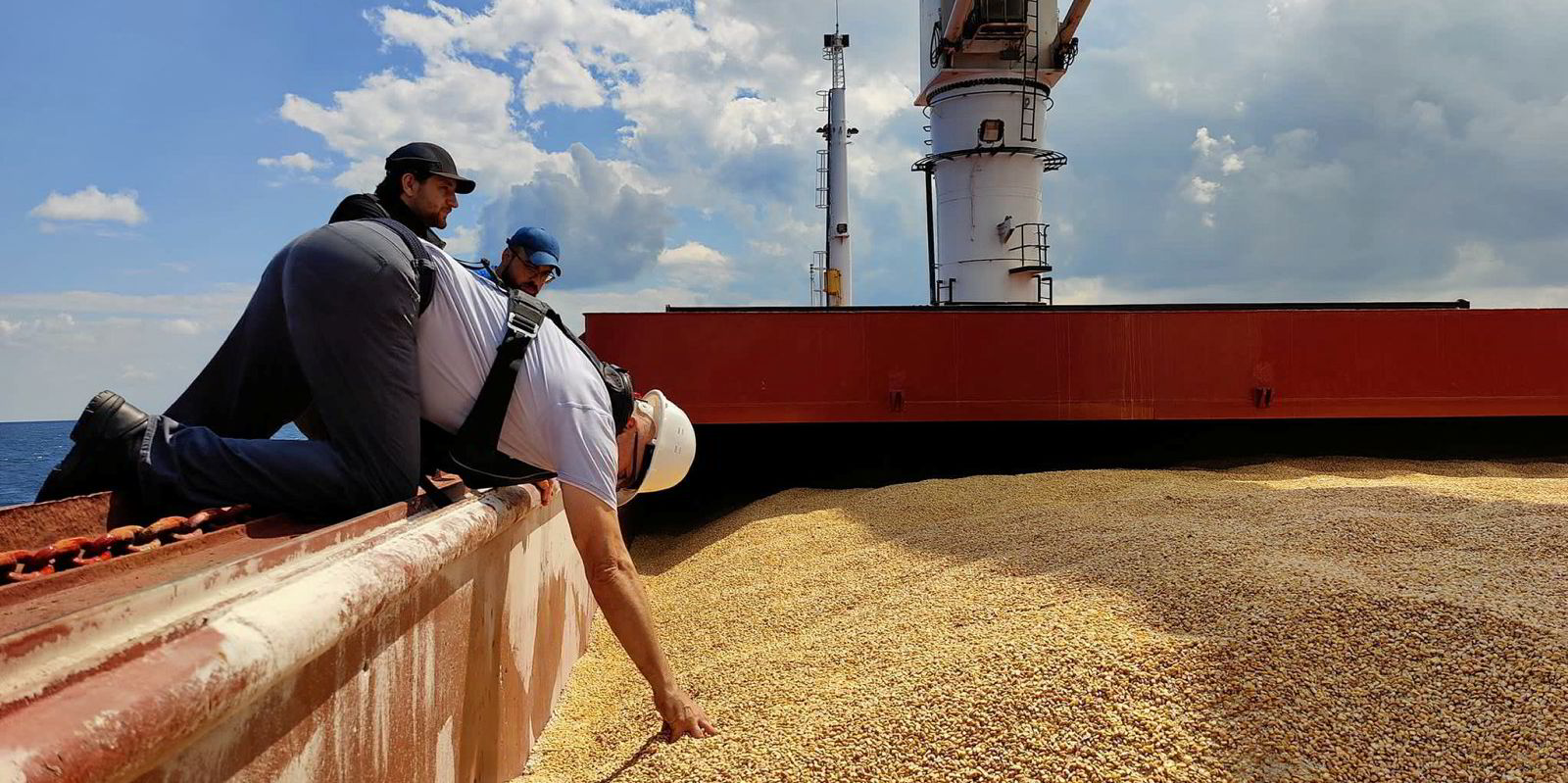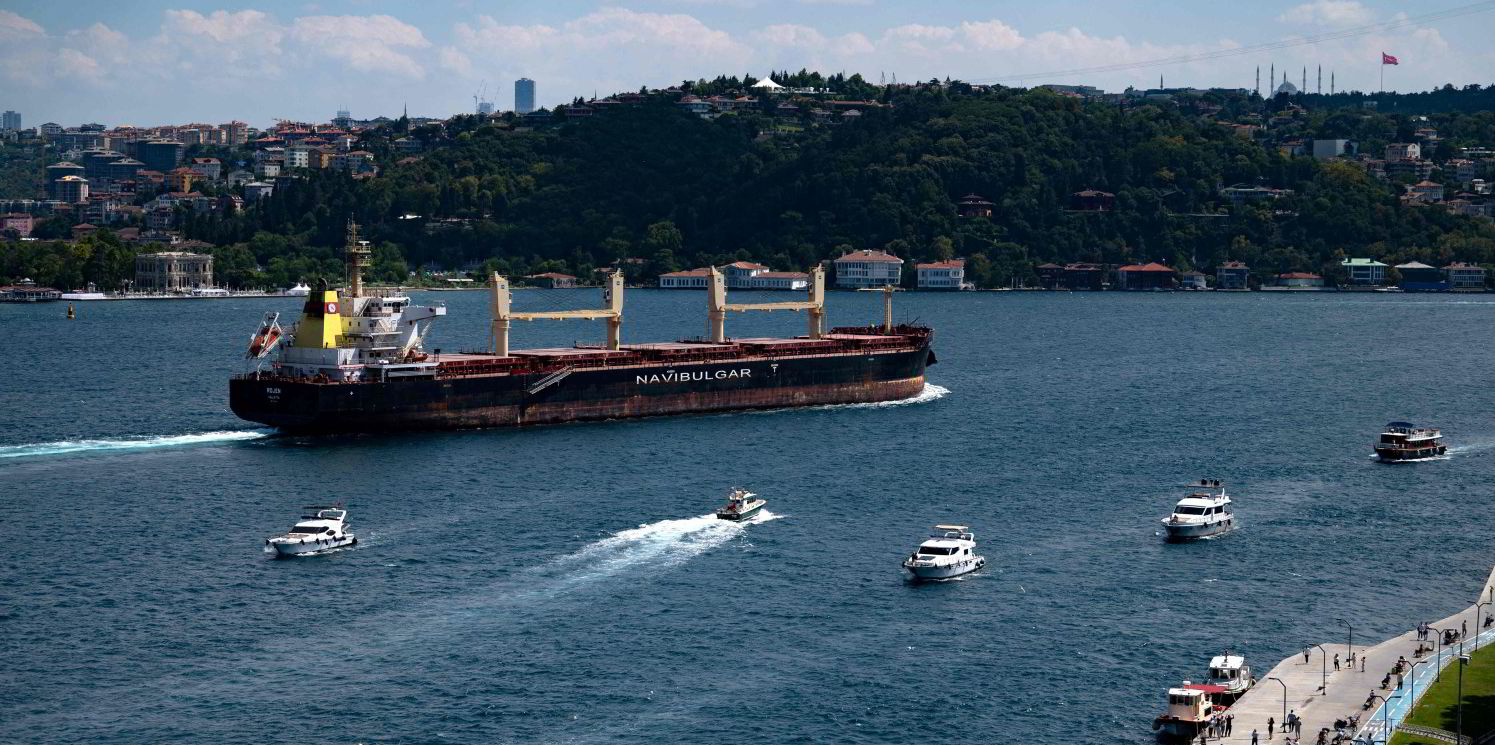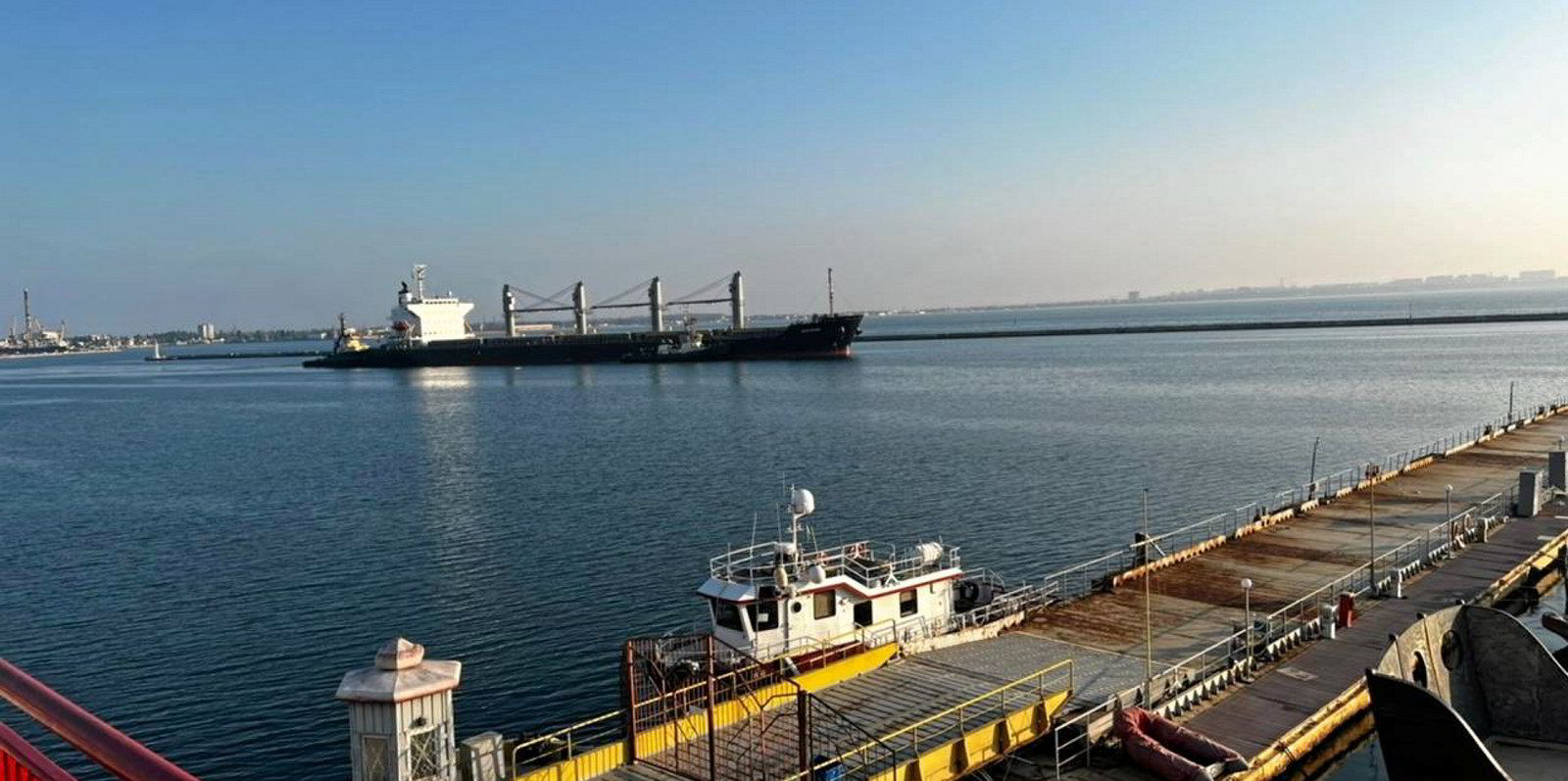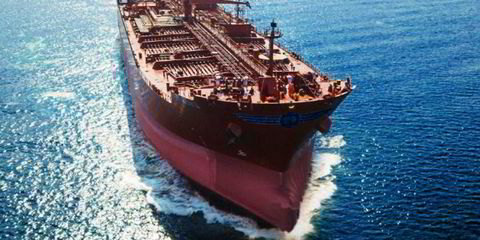The United Nations-brokered safe-passage deal to export Ukrainian grain picked up steam over the weekend, with seven more vessels underway, on top of the five sailing last week.
Turkish authorities, which are coordinating the effort alongside officials from the UN, Russia and Ukraine, announced that a group of four ships that departed Ukrainian ports will anchor at Istanbul late on Monday to undergo the customary inspections on Tuesday.
They include Star Bulk’s 82,200-dwt Star Helena (built 2006), which will carry 45,000 tonnes of sunflower to China; the 76,400-dwt Glory (built 2005) with a load of 66,000 tonnes of corn; Seamax Marine’s 53,500-dwt Riva Wind (built 2005) with 44,000 tonnes of corn en route to Iskenderun, Turkey; and the Turkish-controlled 7,000-dwt Mustafa Necati (built 2015), which is carrying 6,000 tonnes of sunflower oil to Italy.
A subsequent convoy that departed Ukraine on Monday morning includes Intresco’s 13,100-dwt Sacura (built 2011), en route from Yuzhny to Italy with 11,000 tonnes of soybeans; and Ocean Agencies’ 57,000-dwt Arizona (built 2010), carrying 48,000 tonnes of corn from Chornomorsk to Iskenderun.
The Sacura is the first vessel to leave Yuzhny under the scheme. Its size suggests that no bigger vessels can leave that terminal due to manoeuvrability restrictions in its channel.
In the inverse direction, inbound to Ukraine, Armador Shipping’s 30,500-dwt Osprey S (built 2007) has left Turkish waters empty to load a cargo in Chornomorsk.
All in all, about 305,000 tonnes of Ukrainian grain is currently seaborne under the UN scheme.
Join the queue
Nearly one-third of the grain exported from Ukraine through the UN corridor so far belongs to a joint venture between Indonesia’s Arsari Group and international trader Harvest Commodities, which publicly announced owning the cargo of the Arizona and the Riva Wind.
Harvest Commodities has separately hired two other vessels, Evalend’s 28,200-dwt Bronco (built 2014) and a ship it identified as Shark to carry grain from Novorossiysk in Russia. Turkey’s Armador Shipping is also known to be calling on ports in both warring countries.

The chartering details of the vessels underway, however, have not been made public at all.
But according to market sources familiar with the situation, most ships departing from Ukraine are performing the original charters they were under before 24 February, the day Russia invaded and vessels were blocked.
“These ships are with first-class charterers, big houses, so most vessels with an existing cargo on board perform the agreed charter parties with the same charterers,” the source said.
This does not seem to be the case with the 29,300-dwt Razoni (built 1996) — the first ship underway under the scheme — whose charterer reportedly refused to take delivery of the cargo just as it was approaching its destination of Tripoli, Lebanon.
The owners of the Razoni, who are believed to be Syrian, now have to find new buyers for the cargo.
Other glitches are of a more benign nature — a charterer may decide to ship the cargo to a different port than initially foreseen.
In other cases, owners find themselves unable to claim demurrage from charterers because their ships were blocked in port after loading was completed.
Even less information exists about the — presumably new — fixtures of the two ships travelling empty to Ukraine to take new cargo: the Osprey S and the 13,500-dwt Fulmar S (built 2007), both managed by Armador Shipping.
Specialised dry cargo brokers speaking to TradeWinds on 5 August estimated that the first new fixtures for Ukrainian grain in the UN corridor might settle at twice the average “conventional” earnings, which are currently just below $20,000 per day.

One candidate to provide one of the next ships to leave Ukraine under the safe-passage scheme is the World Food Programme.
The Rome-based organisation said on 1 August that it was planning to purchase, load and ship an initial 30,000 tonnes of wheat out of Ukraine on a UN-chartered vessel.
Another issue that has raised questions is under what criteria and in what order vessels are picked to sail under the scheme.
According to the sources, the selection is made by the Ukrainian Sea Ports Authority. Vessels are chosen along the lines of their draught or on general safety criteria.
“They look at whether a ship is ready to sail, is its crew on board, does it have enough bunkers to sail, does it have any technical issue...” the source said.
One key condition is that owners sign documents absolving the Ukrainian government of any legal responsibility or claim should a vessel be struck by a mine or rocket.
Dale Wainwright contributed to this article





